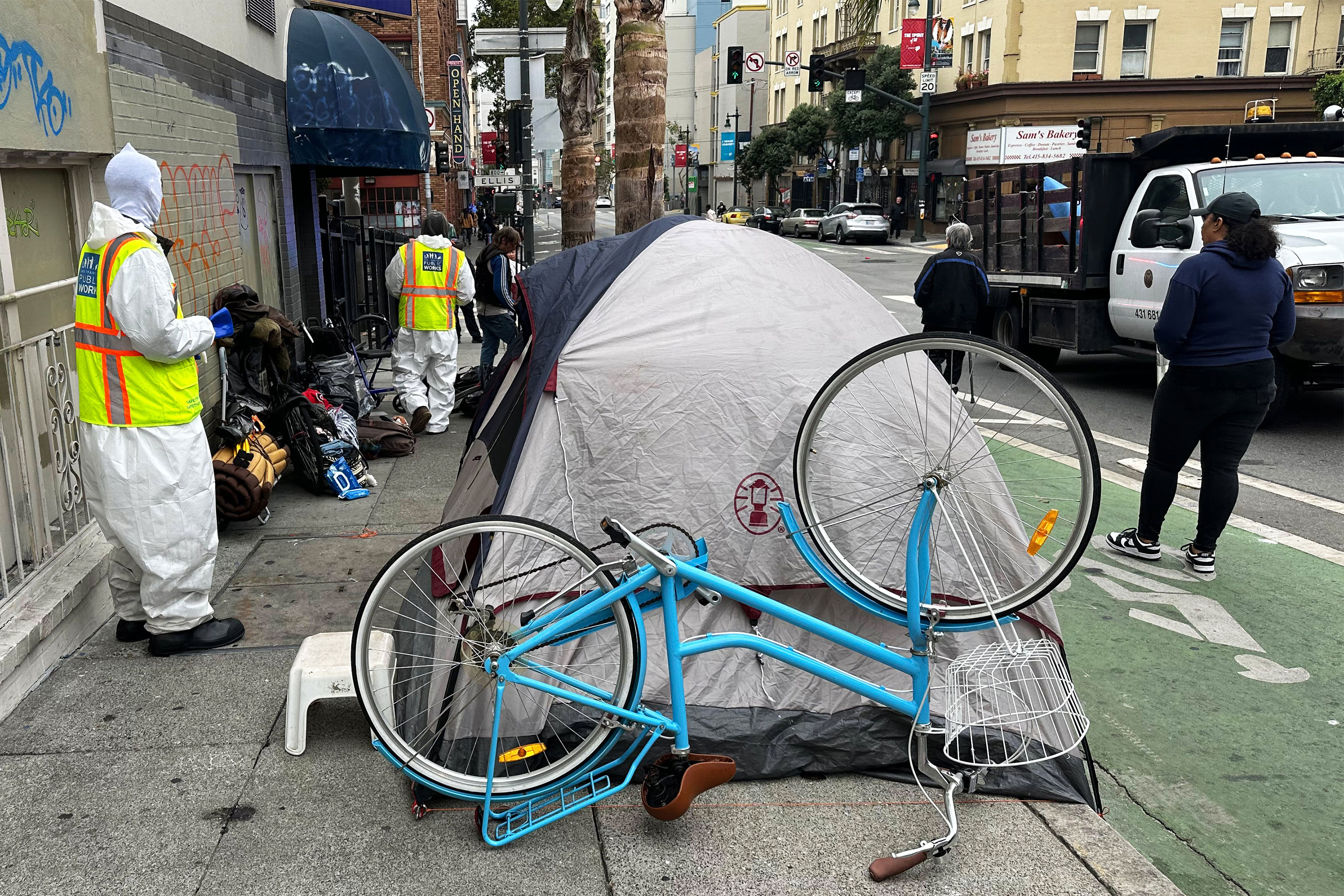In the bustling Tenderloin neighborhood of San Francisco, Andrew Douglass was faced with a tough decision. Surrounded by police officers, he had to choose between going to a shelter or risking arrest for sleeping outside.
Douglass was in a dilemma as he dismantled his tent, worried about missing out on vital services that could help him secure low-income housing. Without a cellphone, he feared losing touch with his case manager, who was due to meet him at the tent the next morning.
California, the epicenter of the U.S. homelessness crisis, has taken a firm stance on dismantling homeless encampments after a key Supreme Court ruling. From sweeping crackdowns to enforcement of anti-camping laws, cities like San Francisco and Los Angeles are intensifying efforts to prevent people from living on the streets.
However, these aggressive measures are impacting the work of health care providers and homeless service organizations. Instead of providing evidence-based treatment and housing, the focus has shifted towards law enforcement, disrupting the critical care connections that help homeless individuals.
Health care experts warn that such crackdowns are fueling a health care catastrophe, undoing the progress made in providing essential services to the homeless population. In San Francisco, where homeless policy was once a beacon of support, front-line workers are witnessing the negative effects of these initiatives.

New policies implemented by Governor Gavin Newsom are not only undermining existing health care initiatives for the homeless but are also creating obstacles in providing long-term housing solutions to those in need.
In the midst of these challenges, homeless individuals like Andrew Douglass are caught in the crossfire, struggling to access the support they need to transition out of homelessness. Despite the sweeping measures to clear encampments, the homelessness crisis persists, highlighting the complexity of the issue.
As health care providers strive to navigate the evolving landscape of homelessness policies, the need for a collaborative and integrated approach to address the root causes of homelessness becomes increasingly urgent.








